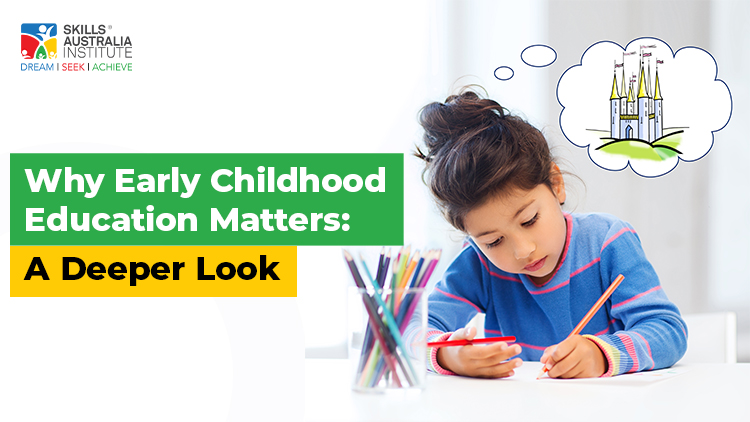
Introduction
Early childhood is a crucial period in every child’s life, laying the foundation for their future development. The importance of early childhood education cannot be overstated; it shapes not just academic success but also social and emotional well-being. As parents and educators, understanding this significance opens doors to opportunities that can transform lives.
Imagine a world where all children have access to quality educational experiences before they even step foot into formal schooling. This vision is not merely aspirational—it’s achievable through effective early childhood education programs. These initiatives empower young minds, nurturing curiosity and fostering a love for learning that lasts a lifetime.
Join us as we delve into what early childhood education truly entails, its myriad benefits, the vital role parents play, challenges faced in implementation, and inspiring examples from around the globe. Each component highlights why investing in our youngest learners today paves the way for brighter tomorrows.
What is Early Childhood Education
Early childhood education refers to the structured learning experiences designed for children from birth to around eight years old. This crucial period lays the foundation for lifelong learning and development.
Programs in early childhood education focus on various areas, including cognitive, social, emotional, and physical growth. These initiatives aim to nurture curiosity while fostering essential skills like communication and problem-solving.
Educators use playful activities that engage young minds. Through games, stories, and hands-on projects, children explore their world.
The environment is often warm and inviting, promoting comfort alongside discovery. It encourages interaction not just with educators but also peers.
In essence, early childhood education cultivates a love for learning that can positively impact children’s futures in school and beyond.

The Benefits of Early Childhood Education
Early childhood education lays the groundwork for lifelong learning. It nurtures cognitive development, enhancing critical thinking and problem-solving skills in young minds.
Socially, children learn to interact with peers. They develop communication skills and emotional intelligence through group activities. This foundation fosters cooperation and empathy.
Academically, early exposure to literacy and numeracy gives kids a head start. Engaging them in playful learning strengthens their readiness for formal schooling.
Moreover, early childhood programs often address diverse needs. They provide resources that support families from various backgrounds, promoting inclusion and equity.
Health benefits also arise from structured environments where routines are established. Children learn about nutrition and healthy habits which contribute positively to their overall well-being.
Investing time in early education ensures a holistic approach that shapes confident individuals ready to tackle future challenges.
The Role of Parents in Early Childhood Education
Parents play a pivotal role in early childhood education. They are the first teachers a child encounters, shaping their attitudes toward learning and exploration.
Active involvement can enhance a child’s educational journey significantly. When parents engage with school activities or assist with homework, it strengthens the child’s understanding and enthusiasm for new concepts.
Creating an enriching home environment is equally important. Simple activities like reading together or exploring nature foster curiosity and creativity in young minds.
Communication is key as well. Parents who maintain open dialogues with educators help bridge any gaps between home and school, ensuring consistency in their child’s learning experience.
Moreover, positive reinforcement at home encourages children to take risks and express themselves freely. This nurturing support creates a safe space where they feel valued and understood, laying the groundwork for lifelong learning habits.

Challenges and Solutions for Implementing Early Childhood Education
Implementing early childhood education can be a daunting task. Many communities face funding shortages that hinder the development of programs. Without sufficient financial resources, quality education becomes hard to achieve.
Another challenge is access. Families in rural or underserved urban areas often struggle to find nearby educational facilities. This gap limits opportunities for many children who could benefit greatly from early learning experiences.
Additionally, training educators remains crucial. Some regions lack qualified teachers trained specifically in early childhood education techniques. Investing in professional development ensures educators have the tools they need to foster a nurturing environment.
Collaboration between local governments and community organizations can bridge these gaps effectively. By pooling resources and expertise, stakeholders can create innovative solutions tailored to their specific contexts—ensuring every child has access to quality early education.
Successful Examples of Early Childhood Education Programs
Many successful early childhood education programs have emerged worldwide, showcasing effective strategies and positive outcomes. One shining example is the HighScope Preschool Curriculum. This program emphasizes active participatory learning, allowing children to explore their interests while developing critical thinking skills.
Another noteworthy initiative is the Reggio Emilia approach from Italy. It fosters creativity and collaboration through project-based activities that encourage self-expression among young learners.
In the United States, Head Start has made significant strides in providing comprehensive services to low-income families. This program focuses on child development while also addressing health and nutrition needs, leading to improved school readiness.
Programs like Montessori emphasize individualized learning experiences tailored to each child’s pace. By focusing on hands-on activities, children gain independence and confidence in their abilities.
These examples illustrate how innovative approaches can lay a strong foundation for lifelong learning during early childhood years.
Conclusion: Why Early Childhood Education Matters for the Future
Early childhood education plays a critical role in shaping the lives of young children. It sets the foundation for their future learning, social skills, and emotional well-being. Investing in early education translates into long-term benefits not only for individual children but also for society as a whole.
When we prioritize early childhood education, we empower parents and communities to engage actively in the development of their youngest members. Children who participate in quality programs are better equipped to face academic challenges later on. They develop essential skills that carry through their educational journey.
Addressing the obstacles to implementing effective programs is vital for ensuring all children have access to these opportunities. By looking at successful examples from around the globe, we can learn what works best and adapt those strategies locally.
The importance of early childhood education cannot be overstated; it lays down pathways toward success that resonate throughout an individual’s life and contribute positively to our collective future. The earlier we invest in our youth’s potential, the stronger our communities will become—creating brighter prospects for generations ahead.




Leave a Reply